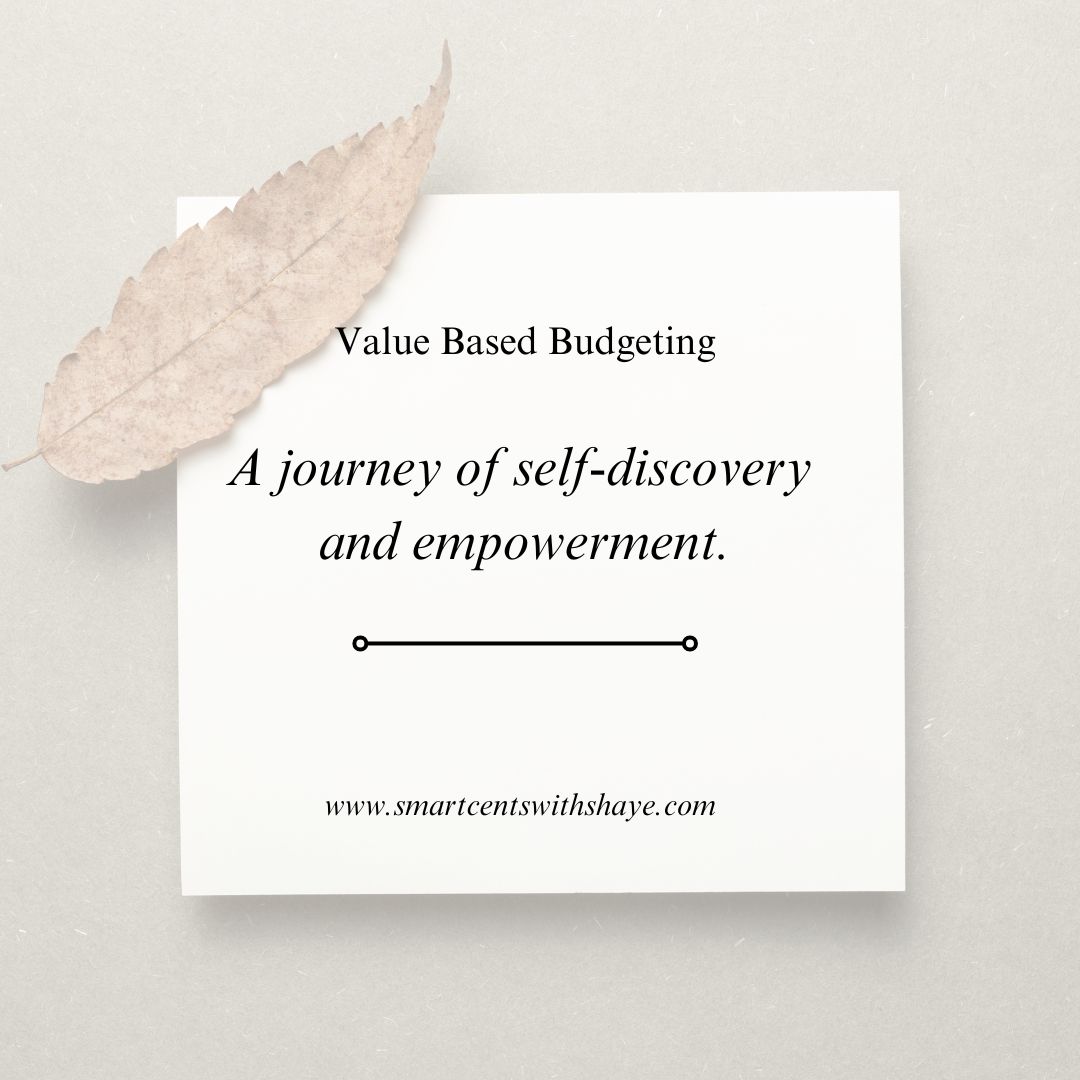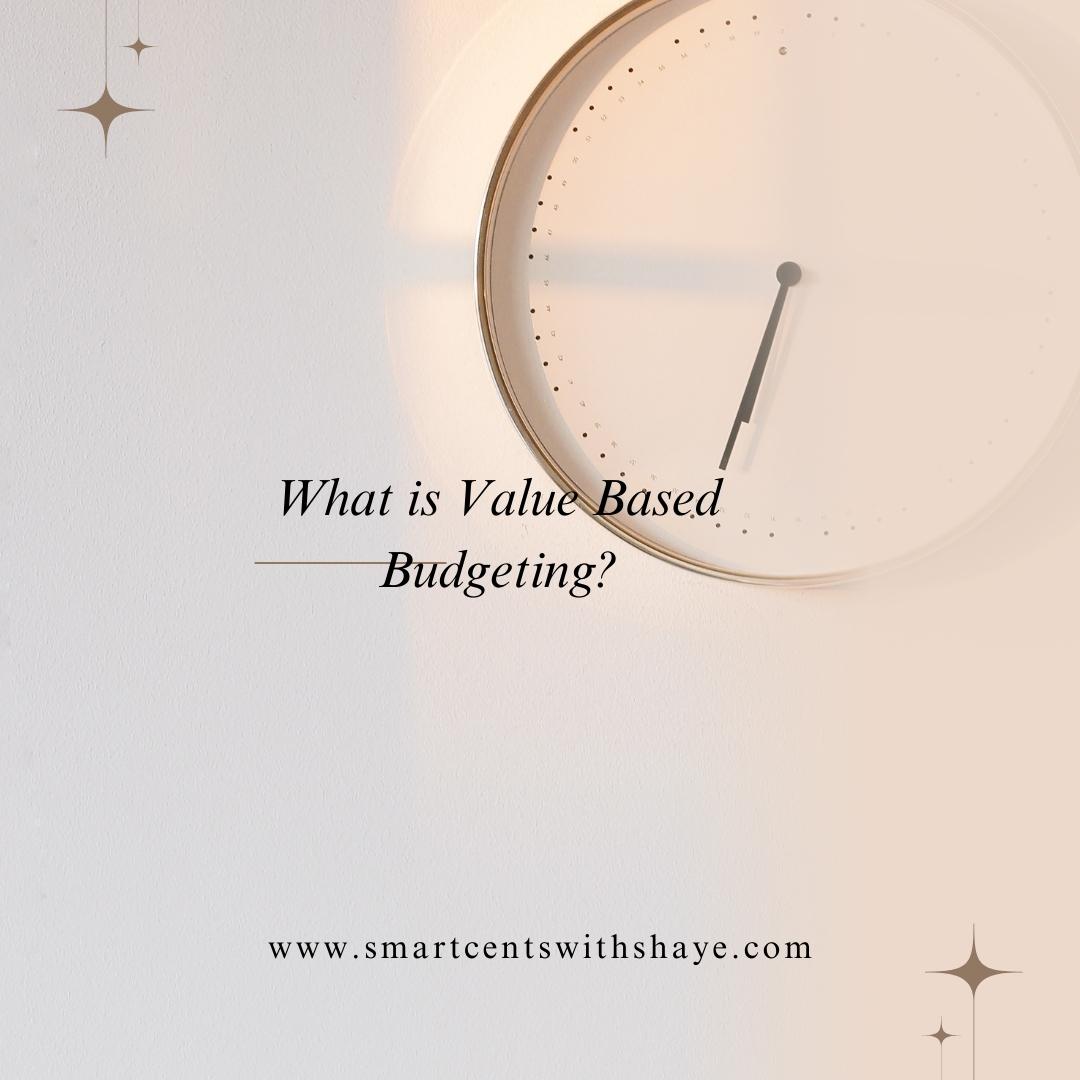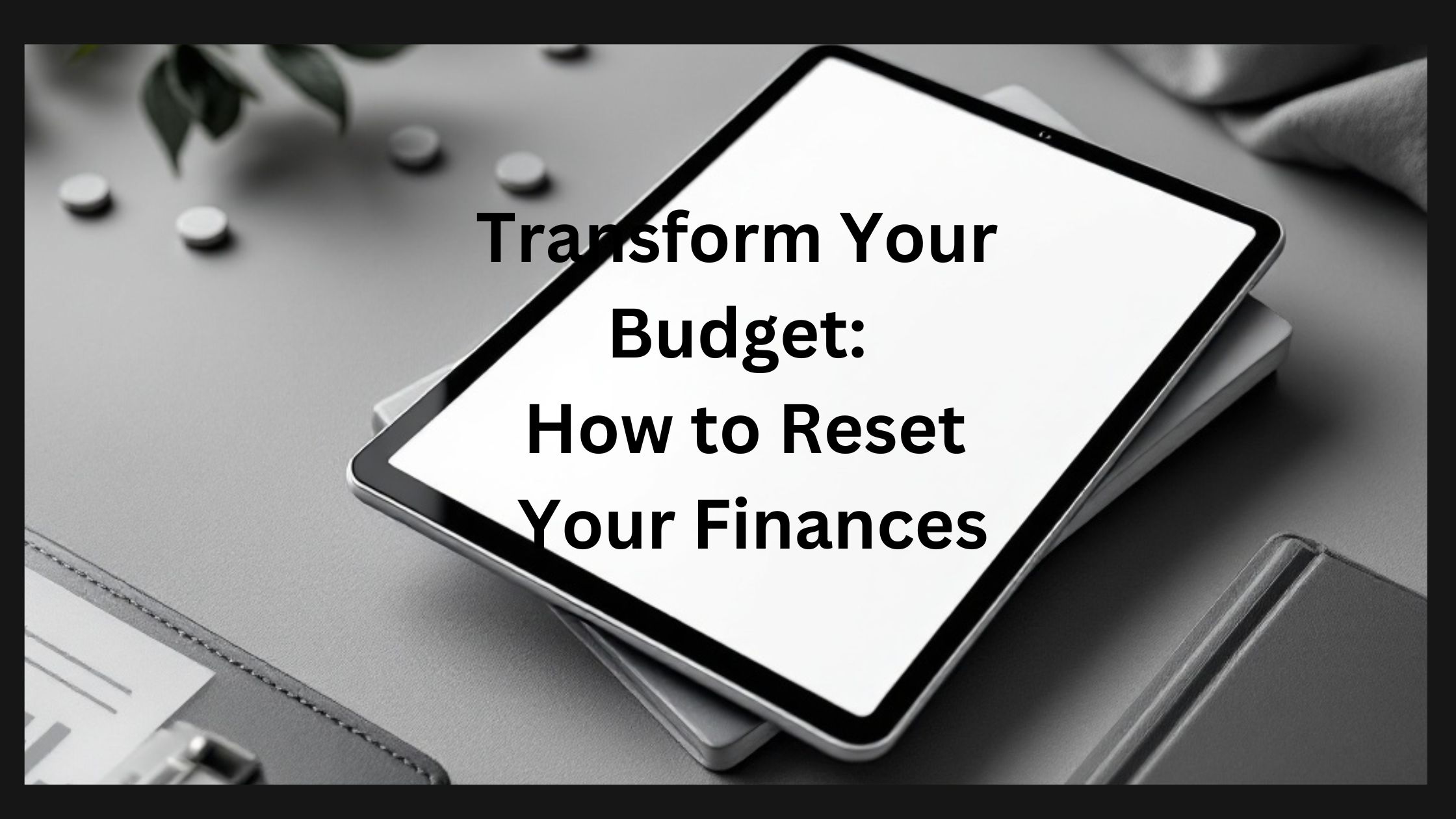
Value Based Budgeting
What is Value Based Budgeting? Well, this is a new term I just recently heard. According to the internet Value Based
Budgeting is “a strategic planning method for taking control of your finances and living a fulfilled life. “
What is Value Based Budgeting? Value Based Budgeting is “a strategic planning method for taking control of your finances and living a fulfilled life. “
During my research, I found valuable information regarding this budgeting strategy.
Have you ever felt like traditional budgeting methods focus only on numbers, missing out on the big picture of what truly matters to you? This is where Value Based Budgeting comes in. A budgeting approach that focuses on aligning your spending with your values, allowing you to make financial choices that genuinely reflect who you are.
Defining Value Based Budgeting
Value Based Budgeting is a strategic approach to managing your finances that centers around understanding and prioritizing your values. Instead of simply tracking expenses, this method emphasizes intentionality, encouraging you to invest in areas that truly matter to you.
The Benefits of Value Based Budgeting
Living a More Fulfilling Life: By aligning your spending with core values, you’re more likely to feel fulfilled and less likely to experience regret from overspending.
Better Decision-Making: Value Based Budgeting helps ensure your financial decisions are purposeful, with a clear emphasis on what’s genuinely important to you.
How to Implement Value Based Budgeting
Your Core Values: Reflect on your personal values, what brings you joy?
Set Financial Priorities Based on Values: Categorize expenses and set priorities.
Distinguish Needs from Wants: Focus on needs over wants.
Maintain Discipline: Practice discipline and stick to the budget, even as values change.

Examples of Value Based Budgeting
1. Family Comes First: Prioritizing Quality Time with Loved Ones
Family is at the heart of our values. However, without a clear budget that reflects this, money might be directed toward material things rather than creating memories with loved ones. Imagine a young mother who, instead of splurging on the latest tech or endless dining out, chooses to put a portion of her budget toward monthly family outings. She allocates for picnics, day trips, or an annual vacation that brings the family closer together.
“This is about investing in joy and closeness rather than in fleeting thrills. Each dollar spent aligns with a memory that enriches family bonds, making her feel fulfilled rather than financially stressed.”
2. Wellness Matters: Focusing on Health and Fitness
For someone whose values are rooted in health, they might choose to prioritize spending on fitness and wellness. For example, a man working a stressful job could habitually grab fast food for convenience. However, with value-based budgeting, he reallocates funds that would have gone to unhealthy food and instead invests in a gym membership, healthier groceries, or a wellness app subscription.
“He feels energized and grounded, knowing he’s choosing health over temporary convenience. With each workout and nutritious meal, he’s not only improving his body but honoring his value of wellness.”
3. Supporting a Cause: Giving Back to the Community
For someone passionate about making a difference, Value-Based Budgeting can be the key to supporting charitable causes consistently. Consider a young professional who’s passionate about environmental sustainability. They could cut back on shopping for new clothes or other non-essentials. Instead, they could set aside money to donate to eco-friendly initiatives, buy from sustainable brands, or even volunteer with local conservation projects.
“They feel purpose and pride knowing they are a part of a larger change. Their budget becomes not just about personal gain, but a meaningful way to support a cause close to their heart, making each dollar count toward something impactful.”

4. Education and Growth: Investing in Personal Development
For those who value self-improvement and lifelong learning, it can be easy to feel guilty about spending money on courses, books, or seminars. With Value-Based Budgeting, however, investing in knowledge becomes an intentional decision. Picture a teacher who dreams of growing in her career. She trims down on weekend outings and instead dedicates that part of her budget toward online courses and certifications.
“With each class she takes, she’s not only gaining knowledge but feeding her ambition and self-worth. It’s not just financial investment—it’s a commitment to her dreams and a reminder that she’s choosing growth over temporary indulgences”
5. Adventure Awaits: Saving for Life’s Experiences
For some, experiences and adventure are central to their happiness. Without a Value Based Budget, it’s easy to watch travel dreams fade as funds drain into day-to-day expenses. Take the example of a young couple who cherishes exploring new places and cultures. They decide to reduce dining out and limit online shopping to allocate more for travel savings, even if it means a few sacrifices along the way.
“For this couple sacrificing a little, they can create memories while visiting places that some only dream about”
Value-Based Budgeting is about focusing on the “why” behind your spending. Each of these examples show how aligning finances with personal values create a richer, more intentional life, turning a budget from a restriction into a powerful tool for growth, happiness, and fulfillment. In every example, budgeting isn’t just about tracking money—it’s about nurturing what’s truly meaningful, giving each dollar a deeper purpose that resonates on a personal level. Value Based Budgeting is a journey of self-discovery and empowerment. This type of budgeting isn’t just about saving money, but about enriching life.
I hope you enjoyed this Blog as much I enjoyed putting it together. Comment and let me know your thoughts on Value Based Budgeting.
Be sure to check out my blog post about the 50-30-20 Budget Rule method.
Click here for a free Google worksheet, “What is important to me.”






Leave a Reply